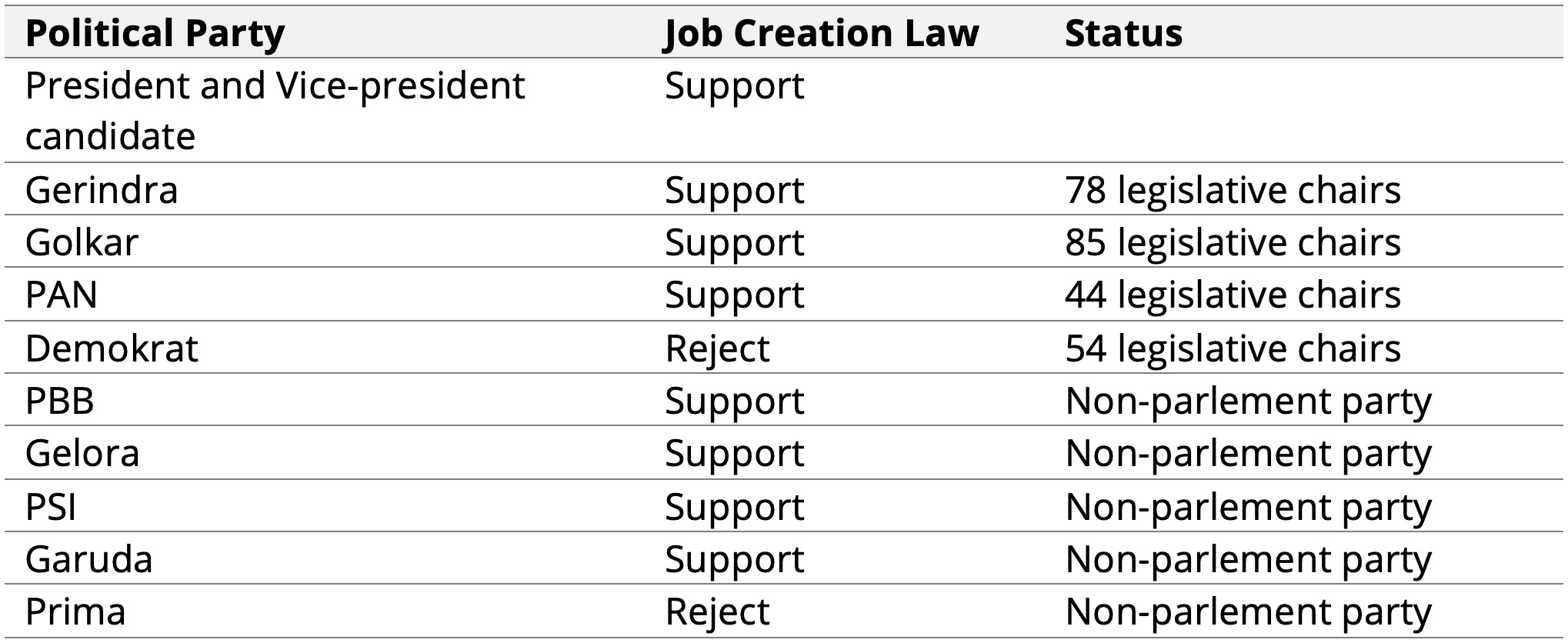Jokowi's Speech in Germany: A Stark Contrast to the Reality on the Ground
By Admin Pantau GambutA Look at the Track Record of Supporting Parties for Presidential Candidates

The analysis revealed that the vision, mission, and programs of presidential and vice-presidential candidates do not directly correlate with the track record of their supporting political parties. To provide boundaries, this analysis was conducted on three key issues: the Job Creation Law (UUCK), Forestry and Other Land Use (FOLU), and the financing sector. Summaries of the track records of presidential and vice-presidential candidates along with their supporting parties are as follows:
Candidate Number 1 (Anies-Muhaimin)
Candidate 1 does not explicitly mention support or rejection of the the Job Creation Law. However, various programs they endorse indicate correlation with certain provisions of the the Job Creation Law, such as streamlining licensing processes and implementing carbon economic values. Supporting parties of Candidate 1 such as Nasdem Party and PKB support the Omnibus Law, while PKS opposes it. Regarding FOLU, there are program differences between Candidate 1 and its supporting parties regarding peat issues. Nasdem Party mentions peat-related programs that contradict Candidate 1's program. Meanwhile, PKS does not have specific programs related to peat. There are also differences in forestry and palm programs. Thirdly, regarding financing issues, Candidate 1 has programs covering innovations in New and Renewable Energy financing, green financing, and carbon trading. However, the stance of supporting political parties of Candidate 1 on these issues cannot be clearly identified.

Candidate Number 2 (Prabowo-Gibran)
Candidate 2 (Prabowo-Gibran) shows correlations between its programs and the the Job Creation Law, especially regarding green energy development, downstreaming of extractive sectors, and the Food Estate project. Its supporting parties, such as Gerindra Party and Golkar Party, support the Omnibus Law and the Food Estate project, while the Democratic Party rejects the Omnibus Law but has conflicting views on the Food Estate. Candidate 2 does not have specific programs related to FOLU and financing issues, so the stance of its supporting political parties on these issues cannot be clearly identified.

Candidate Number 3 (Ganjar-Mahfud)
Candidate 3 has programs related to industrialization, economic growth, and agrarian reform related to the the Job Creation Law. The stance of its supporting political parties, such as PDIP Party, PPP, Perindo Party, and Hanura Party, initially supported the the Job Creation Law but some experienced changes in stance regarding the Food Estate project and the the Job Creation Law.

Considering these findings, there are differences between the programs of candidates and the stance of their supporting political parties, thus monitoring and advocacy are needed to ensure policy implementation in line with public interests, environmental protection, and democratic principles.
For a deeper understanding of this analysis, you can access it through the attachment below:



